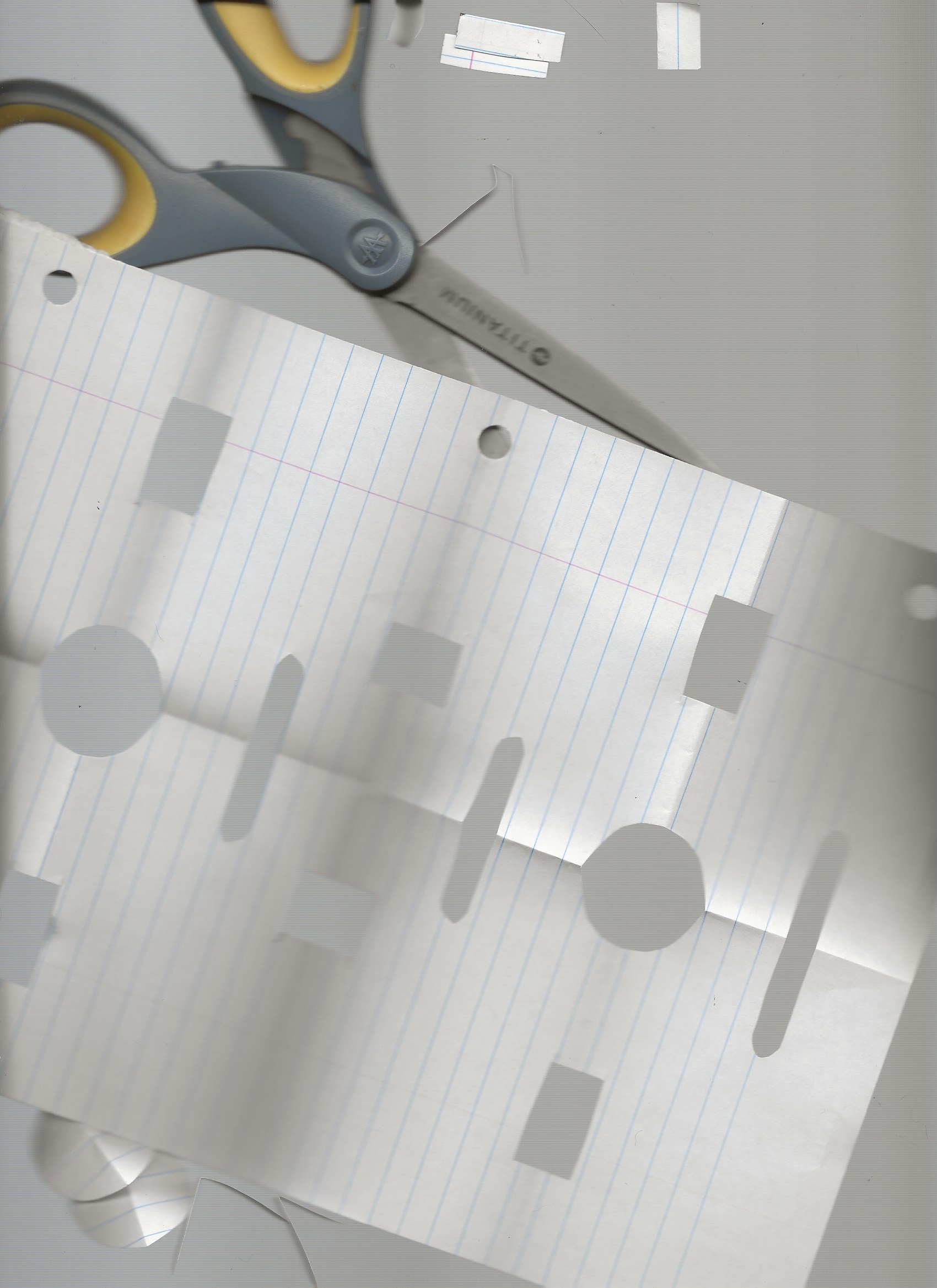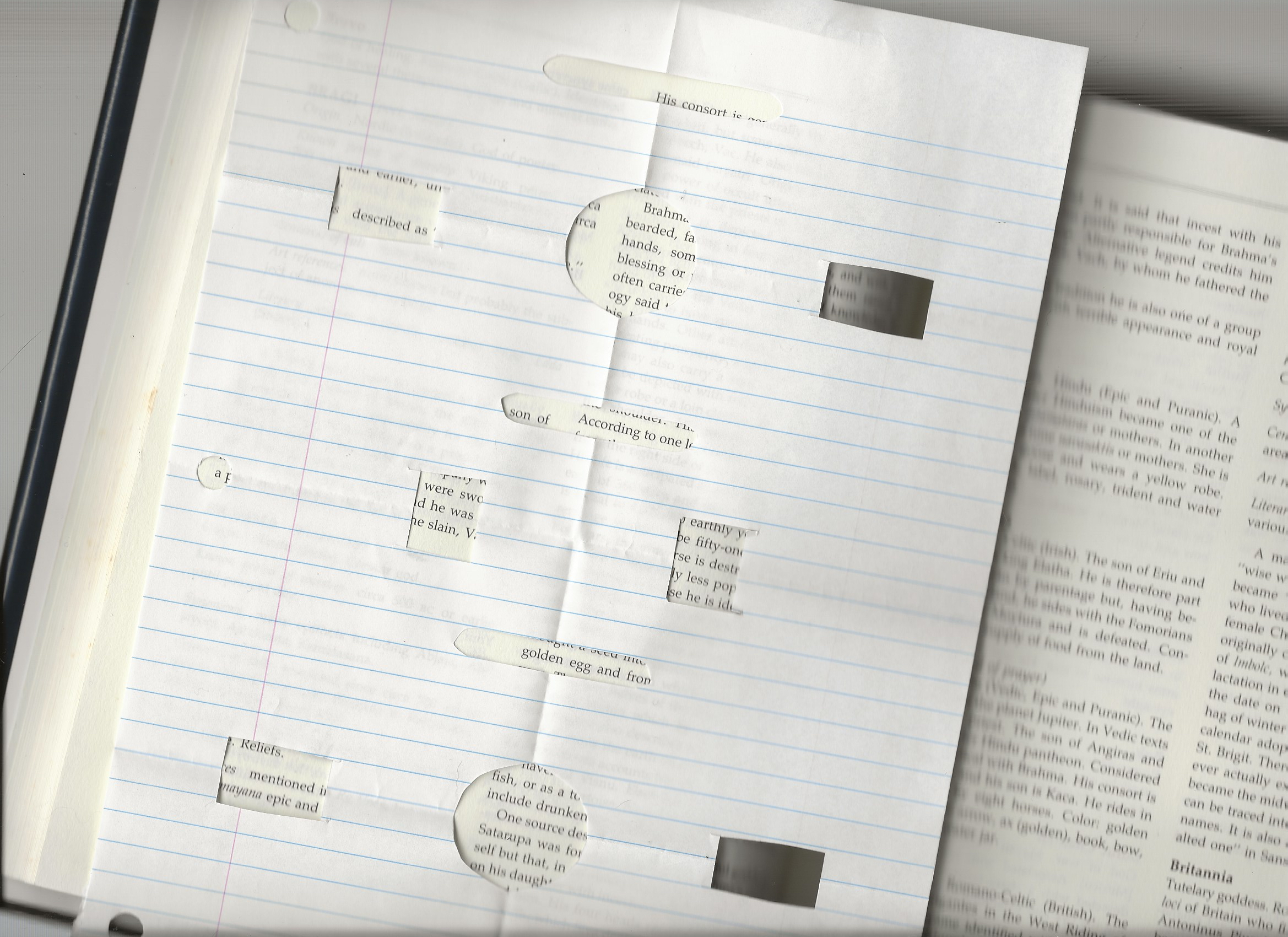


Are you sure you want to reset the form?
Your mail has been sent successfully
Are you sure you want to remove the alert?
Your session is about to expire! You will be signed out in
Do you wish to stay signed in?

An oculus is a round window at the top of a dome that acts as a light source for the interior, through which we see the heavens and through which the heavens come. (This is a good one for radical revision.)
 Step 1
Step 1
Remember paper snowflakes?
Fold, crease, and pattern a piece of paper with holes using scissors or tears.
The idea is to create oculi—spaces where you’ll look for words and inspiration or where they will reveal themselves to you. One hole will work, but having multiple in varying shapes creates a new order—you’ll read words in succession that would never have been intended to be read that way.
This is the magic of the oculus.

Step 2
Find something with words written on it. A book, a magazine, a computer screen, your own poem. Position your oculi with as much precision or imprecision as you desire. Read the phrases, words, and partial words inside the holes. Move your oculus around the page. Find new ideas and write them down.
Step 3
Read what was revealed.
Arrange and rearrange.
Add your own words where needed.
Create a poem.